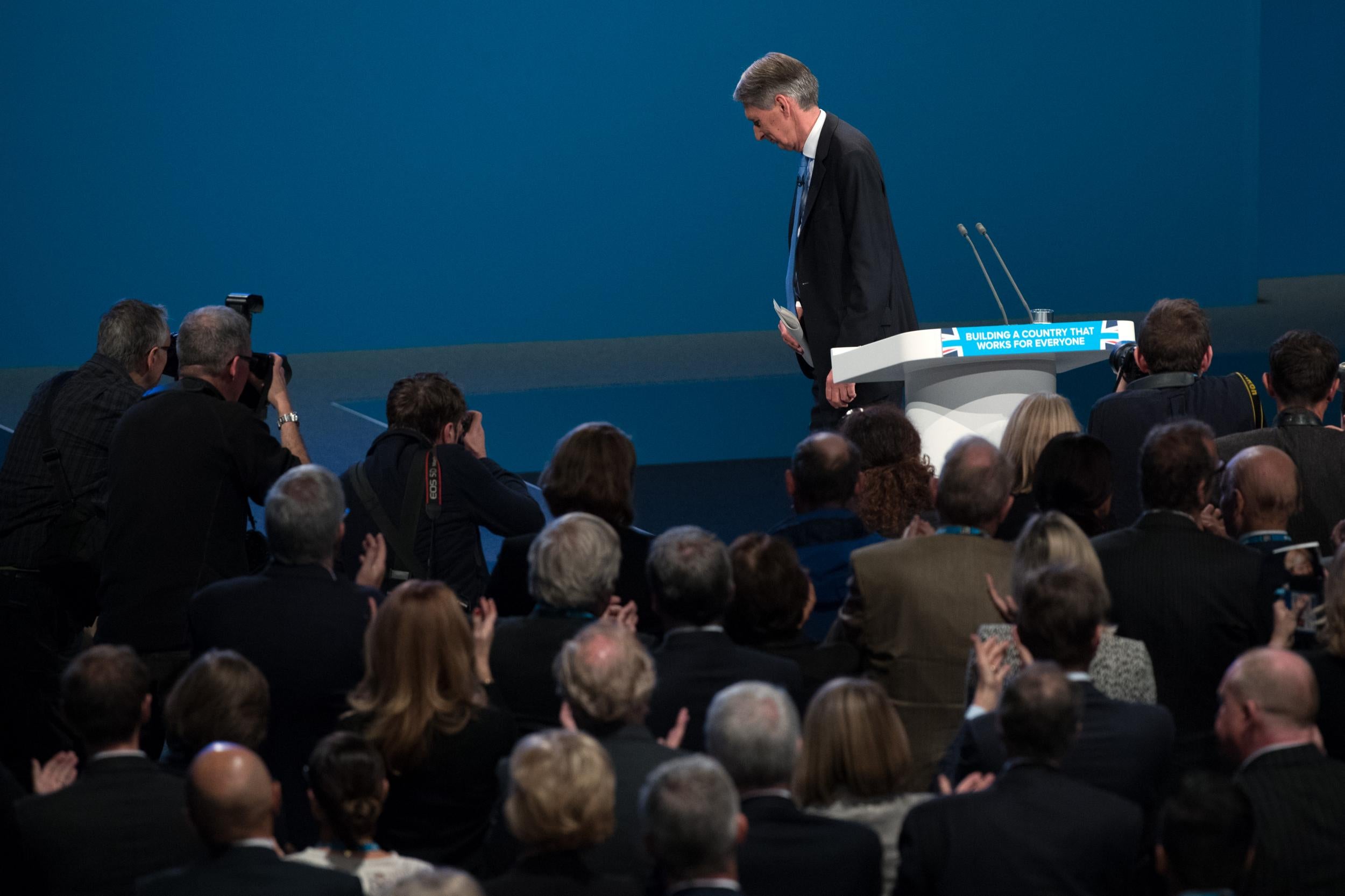The longer you listen to Philip Hammond, the less a return to the 1970s seems so bad
Like so many at Tory party conference, the Chancellor seems to think his party needs to ‘re-win’ arguments that millions of people never consider them to have won in the first place

It is understood to be a chap called God who first alighted on the powerful rhetorical technique of contrasting a bad thing with a good thing – in this case heaven and hell – in the hope it would inspire people to choose the good thing over the bad.
Hell, you may be aware, with its eternal fire, torture and so on, is meant to be terrible and avoided all costs. Heaven, on the other hand, is much, much better. It has cherubs, harps, clouds, all sorts.
The key takeaway, however, is that you definitely do need both. Though one presumes to know the ways of The Almighty with great reluctance, if God’s private polling were to indicate a huge surge in popularity for eternal fire and torture, He would know that a ramping up of warnings on fire and torture alone would not be the way to go.
God, in his infinite wisdom, would be dialling up the messaging on the cherub/harp/eternal life piece too.
We turn then to the Chancellor of the Exchequer’s conference speech. Very, very big on Labour hell. Very, very small on Tory heaven, but more on that shortly.
Praise where it is due. Finding a relatively high ranking Conservative to introduce the man known as “Box Office Phil” without inadvertently upstaging him is no simple task, but in the newly elected Tees Valley Mayor they had certainly found their man.
The Chancellor began with a joke about being in the City of Manchester yet being United, from which I cannot be completely certain I am not still suffering PTSD.
It moved on to a history lesson. This is the third Conservative Party conference during which the Labour Party has been led by Jeremy Corbyn. It is very clearly the first time they have taken him seriously. While Philip Hammond spoke, by the way, the other hot ticket in Tory town was a fringe event with the party’s rising star, Ruth Davidson, who not so long ago, encouraged Tories to pay £3 to join Labour and elect Corbyn leader.
It is a common theme of this conference to hear Tories saying they must re-win arguments they imagined themselves to have won in the 1980s, and so we were led on a gentle trot from Venezuela to Cuba, via the 1970s.
“When wages were set by the unions not by the markets ... and the Government had to borrow money ... and inflation was at 26.9 per cent and income tax at 83 per cent ... and doctors and teachers all left for a better life abroad ... and then along came Margaret Thatcher and suddenly everything was absolutely great.”
This is how, we discovered, the Conservatives are going to re-win these arguments “by our logic, by our history”.
One slight problem, Box Office Phil has, however, and rarely is it made more obvious than when the Conservatives rock up every year or so for their grand jolly in some northern city to the background music of flying eggs and people on the streets chanting “Tory Scum!”, is they’re not altogether convinced these arguments ever really were won.
And Mr Hammond, did not merely not win them. He did not seek to win them. In the Manchester conference hall, there was no heaven on offer. Plenty on hell, but no one appears to have told him that Oooh heaven is a place on earth, and there’s rampant job insecurity, zero hours contracts, rising tuition fees, soaring energy bills and a crisis in the National Health Service. There’s cuts to local council funding, there’s mushrooming school class sizes, pension discrimination against late middle aged women and if you happen to be disabled, well, you’ve definitely got nothing to lose on a cheeky vote for Hell.
There may have been a rousing conclusion at the end, though it lingered in the memory for even less time than the applause that extended barely long enough for the Chancellor to make it off the stage.
The audience was out the door like there was anywhere they’d rather be. Even, perhaps, the 1970s.
Subscribe to Independent Premium to bookmark this article
Want to bookmark your favourite articles and stories to read or reference later? Start your Independent Premium subscription today.

Join our commenting forum
Join thought-provoking conversations, follow other Independent readers and see their replies